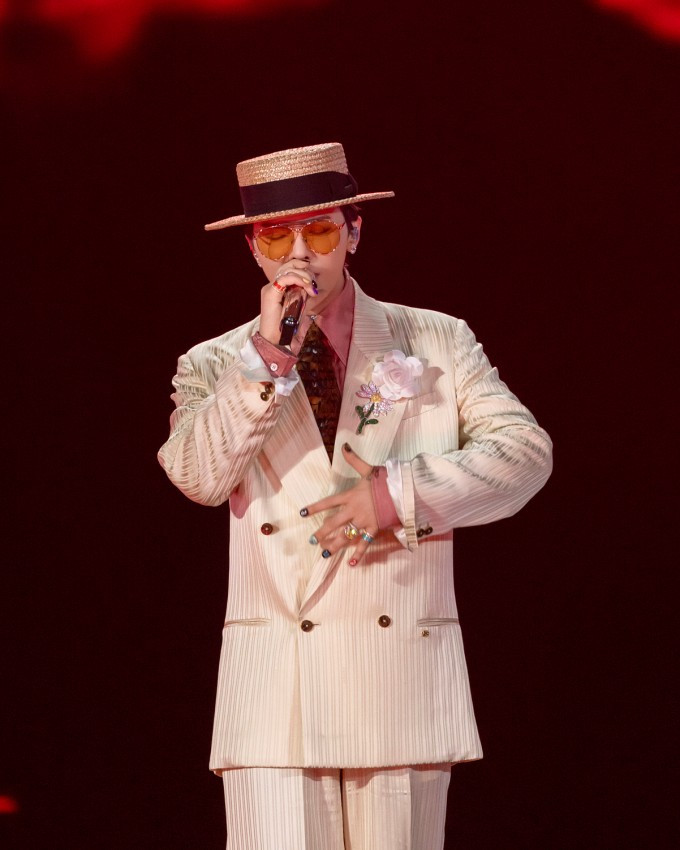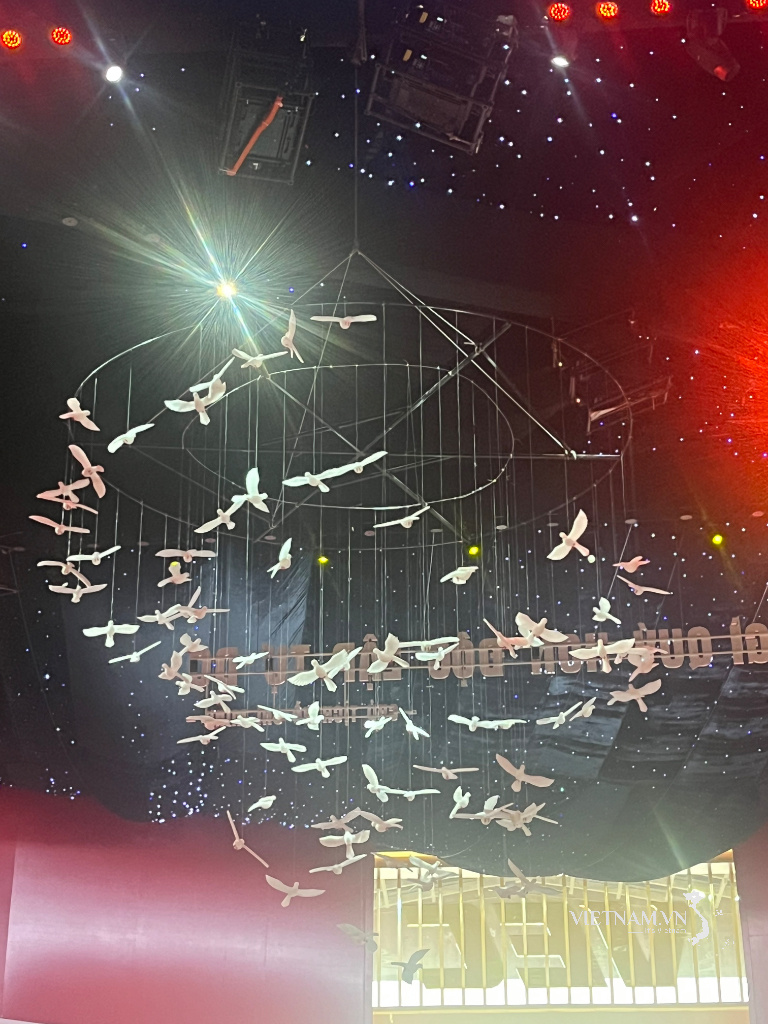On November 8th and 9th, G-Dragon's two concerts in Hung Yen attracted approximately 100,000 attendees. The show ranked second in his tour in terms of viewership, only behind the show at Tokyo Dome (Japan). In two and a half hours, he sang around 20 songs, taking listeners through a range of emotions, from energetic to poignant. The singer impressed fans with his stage presence, dancing skills, rapping, and charming interaction with the audience. Every dance move, every interaction with the cameras, and every conversation with fans drove the crowd wild.
G-Dragon's fans span from the 80s generation to Gen Z. Bui Hang, 33, said she felt like she was "returning to her youth" with her idol: "G-Dragon maintained his excellent form and was electrifying in every performance." Videos of the concert in Vietnam quickly attracted attention from fans across Asia. Images of the male idol sitting in a moving vehicle, or scenes of tens of thousands of people chanting G-Dragon's name in unison, continuously spread on social media.
Singer Soobin Hoang Son said that the two concerts gave him more inspiration and broadened his understanding of how to put on a show. He learned from the Korean artists about professionalism, stage design techniques, sound and lighting operation, and how artists appear, manage, and interact with the audience.

G-Dragon has maintained his popularity after nearly 20 years in the industry, earning the title of "King of K-pop." On October 23rd, he received a medal from the South Korean government for his "activities in leading the Korean Wave (Hallyu) and expanding the value of national entertainment culture globally."
The JoongAng Ilbo newspaper praised G-Dragon as the person who "transformed Kpop idols into true artists." Unlike most idols who always adhere to the mold set by their management companies, he has a different vision. As the leader of Big Bang, he broke the mold of uniformly beautiful Kpop groups, creating a stronger, more "quirky" image. G-Dragon participated in composing and producing many of the group's big hits such as Lies, Haru Haru, Fantastic Baby, and Bang Bang Bang. Big Bang won more than 100 major and minor awards domestically and internationally, contributing to the global Hallyu wave from 2007 to 2015.
He paved the way for a generation of idols to self-produce their music, emphasizing their individuality with a series of solo albums including Heartbreaker (2009), One of a Kind (2012), Coup d'Etat (2013), and Kwon Ji Yong (2017). G-Dragon blurred genre boundaries, incorporating elements of hip-hop, rock, electronic, and R&B into his music, making his songs easily accessible to Western audiences. Furthermore, G-Dragon's lyrical themes are often more introspective and rebellious than traditional K-pop, which is primarily characterized by cheerful and bright songs. He explores loneliness, heartbreak, and the downsides of fame. Songs like Heartbreaker, Crayon, Who You, and Super Star are memorized by fans, who sing along with him at every concert.
"G-Dragon is perhaps the only K-pop figure who has both written lyrics, composed, and produced his own music, while also building a unique artist brand. His creativity and ever-evolving style help him maintain his influence," commented Professor Kim Heon Sik of Jungwon University.

This year, he returns with the album Übermensch, inspired by the philosophy of the German philosopher Friedrich Nietzsche about a person who creates value and meaning for their own life. "Übermensch" in German means "superman" or "superhuman . " According to Philosophy Break, Friedrich Nietzsche used this concept to challenge modern man: Instead of living by imposed rules and beliefs, create your own value and purpose, and live fully to your own potential.
Eleven years after his last solo album ( Coup d'Etat , 2013), G-Dragon wanted to send the message that Übermensch marks a new turning point: he's not just returning, but a superior version of himself, stronger and more mature.
Ubermensch sold 440,000 copies in its first week. Over 30 concerts promoting the album were sold out. According to critics, G-Dragon is the only male solo artist capable of simultaneously topping the physical album sales, digital music charts, and concert charts.
Beyond his music, G-Dragon captivates with his unique style, earning him the title of "King of K-pop Fashion" from Vogue Korea . He pioneered breaking gender barriers in fashion, frequently wearing heavy makeup, sporting women's clothing, and sporting elaborate manicures. The idol created numerous trends, such as the traditional headscarf, "auntie" fashion, and wearing pajamas. The iconic daisy with a missing petal at the 8 o'clock position, associated with his fashion brand, has become a beloved image and accessory among fans. To this day, the singer sits in the front row at many major international fashion shows and is a global ambassador for Chanel.
The November issue of W Korea magazine featured G-Dragon on its cover, calling him an "icon that transcends boundaries." According to the Korea Times, in the ever-evolving world of K-pop, few names have as much influence as G-Dragon. As an artist, cultural icon, and global trendsetter, his name transcends the realm of music. G-Dragon's comeback earlier this year faced many challenges, such as a drug scandal, a long period of military service, and the transition from the "giant" YG Entertainment to a smaller company. Yet, in the end, he not only maintained his position but also pushed the boundaries of what a K-pop idol can achieve.
Source: https://baohatinh.vn/ly-do-g-dragon-gay-sot-post299391.html














































































































Comment (0)